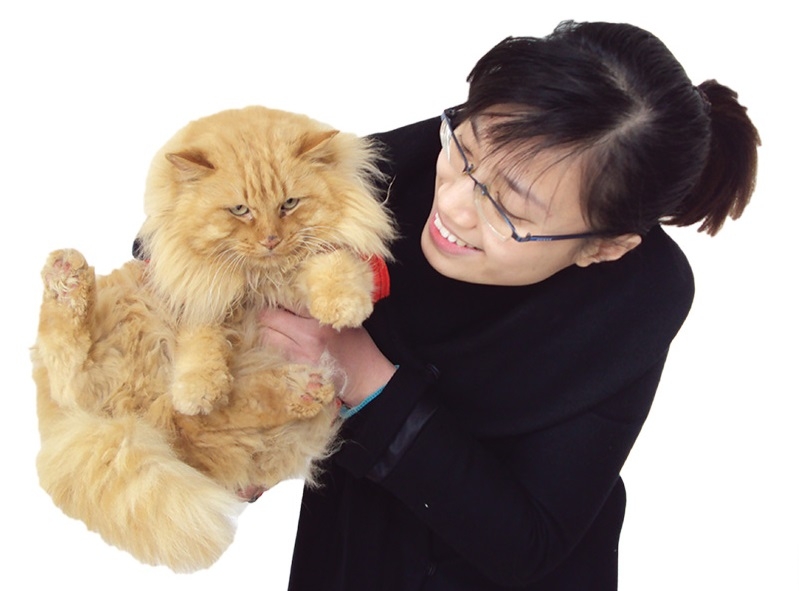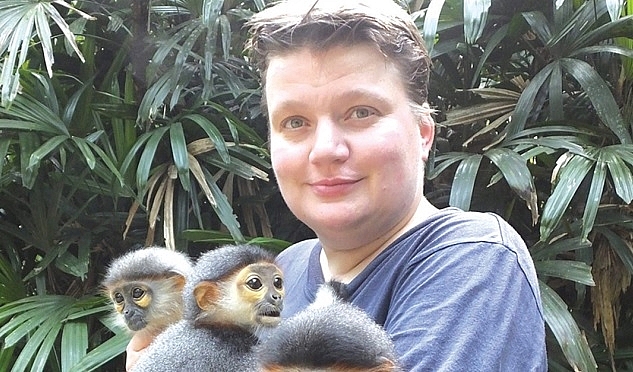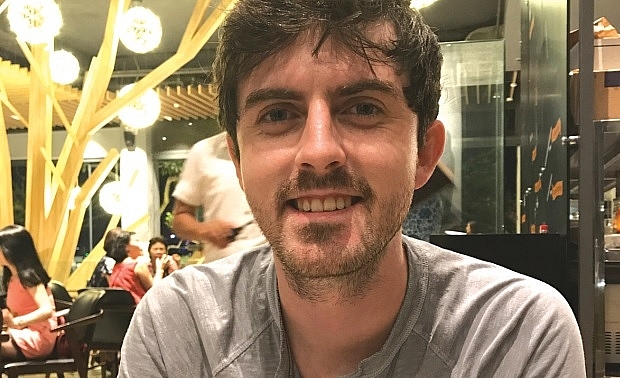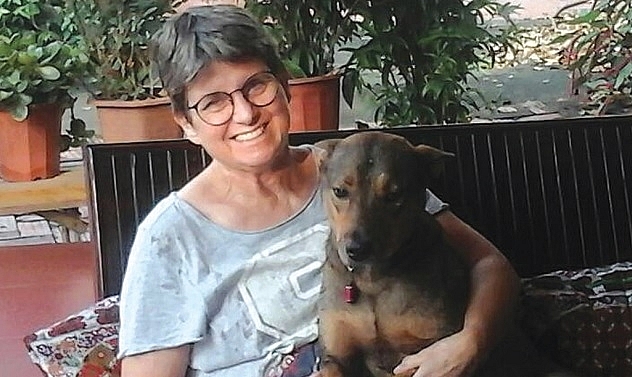Much love for dogs and cats in Vietnam
 |
| Much love for dogs and cats in Vietnam |
With a mere 300-some positive cases and no casualties reported, Vietnam has been praised for its successful response to the coronavirus crisis. Most of the encouraging results came from the timely and strict control measures and the co-operation of the public.
While the Vietnamese are slowly returning to their old lifestyles, a number of overseas news agencies claimed that the consumption of grounded dog and cat meat in Vietnam increased sharply as the people would eat this meat “to prevent and treat COVID-19”.
Fake News Under Scrutiny
PolitiFact cited the founder and director of Hanoi-based Vietnam Animal Aid and Rescue, Cat Besch, when she was asked about the claim that black cat paste is sold in Vietnam as a COVID-19 placebo, saying that she has seen “zero evidence in Vietnam so far that this is true”.
The fact-checker site also added that the news service that generated the story has removed the article from circulation amid concerns about its credibility.
It is true that in Vietnam, domestic animals and livestock are nowhere near being treated as they should be. The country has also long been criticised for mistreatment of animals and the old custom of eating dog and cat meat. While some still consider dog and cat meat as regular food, most Vietnamese people have long begun to cut down their consumption after massive warnings from local media, especially after the COVID-19 pandemic came to life. These days, even the elderly are gradually saying goodbye to this type of food.
The 70-year-old Nguyen Cuong who is living in the Hanoian “kingdom of dog meat” – Nhat Tan hamlet – used to enjoy this local speciality at least once a week with his fellows at a vendor nearby.
A few months ago, Cuong shocked his friends, saying that he would completely give up on eating dog meat which seemed to be his lifetime habit.
“I was afraid when the Vietnamese news said that dog meat might be carrying diseases, just when we were going through the coronavirus outbreak. Therefore, I believe it’s time to stop eating the meat,” Cuong said.
According to Pham Truong, the owner of a dog meat vendor in Hanoi’s Phung Hung street, less customers were coming to his eatery, both before and after the social distancing had been initiated but especially after the city issued a warning that people should not eat dog or cat meat to reduce the risk of COVID-19 infection.
“Just before the social distancing order took effect, some customers came and told me that perhaps it was their last visit. Since then, my place has lost some more patrons and the sales dropped a lot compared to the period before COVID-19,” Truong added.
Pets now become friends
Along with people’s fear that dogs and cats are potential sources for viruses, the change of their habits has also been influenced by nationwide media campaigns urging people to change their attitude towards domestic pets. These campaigns have been increasingly well organised in Vietnam, with the most enthusiastic initiators being young people.
In 2015, the “Ve di Vang oi!” (Come home, Vang!) campaign received enthusiastic support from not only celebrities but also youngsters in Vietnam. Launched by the Asia Canine Protection Alliance, Ve di Vang oi aimed to gather 1 million signatures, promoting compassion towards dogs and to call for an end to the theft, trade, slaughter, and consumption of dogs in the country.
Last August, many of the youngsters in Ho Chi Minh City participated in another campaign entitled “Dogs and Cats are Friends, not Food” to raise people’s awareness that dogs and cats should not be mistreated and consumed as food.
Nguyen Hong Nhan, member of the organising board, shared that “We want to build a community where love for animals is spread widely and which helps young people to change their perceptions and actions.”
For many consecutive years, the authorities of Hanoi and Ho Chi Minh City have also organised a series of campaigns for people to abandon their dog and cat eating habits and encouraging related trading businesses to switch to other forms of business.
On many forums and social networks, groups of cat- and dog-lovers, such as Dao Meo (Cat Island), Vietnam Sphynx House, and the World Cat Federation (WCF) Vietnam by Vietnam Cat Lover Club, to name but a few, are becoming increasingly more active and attract the fascinating participation of the young generation.
As the admin of the popular Facebook group Dao Meo with some 2 million members, Trung An is currently also the admin of the Munchkin cat-lovers association with nearly 30,000 supporters. Talking with Timeout, Trung An said that apart from sharing pictures and funny videos of their pets for entertainment purposes, cat-lovers in these groups are now tending to sharing experiences and tips on pet caring and breeding.
Trung An has more than 10 years of experience in taking care of cats, but since joining the WCF Vietnam, he has found himself spreading more love to the community via offline meet-ups where he can share his experience and activities with impacts on a larger scale. “The members of the club are mostly breeders; therefore, they are quite professional, and their influence on other cat owners is also more widespread. For us, the value of a cat does not lie in how much it costs but in how we treat them fairly and respectfully as a friend,” Trung An reaffirmed.
Furthermore, the love for pets has encouraged more competitions for dogs and cats to be organised. Trung An said that the WCF National Cat Show, organised by the world’s largest cat association, the WCF, in mid-February, has become one of the largest-scale cat competitions in Vietnam.
“The competition has exerted a great impact on cat lovers in Vietnam, as well as around the world. A number of international news agencies also attended, and most international articles praised the successful organisation of the contest in a country where dogs and cats are still sometimes eaten,” Trung said.
| Elke Schwierz (German)
Animals in Vietnamese homes are very common. Every family has at least a cat and a dog. In the countryside, a cat has to catch mice and a dog should protect the house. In cities and towns, pets are often status symbols, and people spend quite a lot of money on them. There are a lot of pet shops and veterinarians for pets in cities and towns, and I have seen many Facebook groups for special dog breeds. However, it seems that even richer people with more expensive pets don’t change: They still feed boiled rice and leftover human food to their pets. Some Vietnamese seem to believe all creatures live on rice. Nowadays, I get the feeling that there are just too many dogs in Hanoi, and too many big ones too. | |
| Ollie Arci (British)
I think that Vietnamese people treat their pets well. People at home normally see pets as a part of the family, and I think this is true in Vietnam too. As people’s incomes rise, they can afford to have a pet and I see many young couples in Vietnam with a small dog or cat at home. With lower incomes, people wouldn’t be able to afford to keep a pet and feed it. I think there is a preconception that Vietnamese treat animals poorly. There are, of course, examples of that in the country, but mostly I have seen people looking after pets almost like their own children – dressing them up and posting selfies on social media. I am also seeing more pet shops and grooming salons opening around Hanoi. | |
| Sabine Hartwig (German)
I can recognise three types of pet owners. First, some traditionally see dogs and cats as livestock. They use dogs to protect the house from unwanted intruders. Then, some people, mostly in cities but increasingly also in rural areas with rising incomes, see a dog as a luxury accessory. Men seem to prefer mostly strong and exotic breeds like Rottweilers, Pitbulls, and Huskies while women go for tiny Chihuahua or toy poodles. The animals are rarely kept according to their nature but are meant to accommodate the needs of their owners. Lastly, some people in Vietnam now become aware that we are one part of nature and life on Earth. As such, they see that animals are not here to be exploited. |
What the stars mean:
★ Poor ★ ★ Promising ★★★ Good ★★★★ Very good ★★★★★ Exceptional
 Tag:
Tag:
Related Contents
Latest News
More News
- Dong Ho folk painting added to UNESCO’s urgent safeguarding list (December 11, 2025 | 18:09)
- Conference focuses on switch from dog and cat meat trade to sustainable, safe jobs (December 11, 2025 | 12:13)
- 3F Plus clean pork amazes Michelin-starred chefs (December 09, 2025 | 12:15)
- The Rhythm of Blues – Colours of the Year 2026 (December 06, 2025 | 12:10)
- Pan Pacific Hanoi kicks off 2026 art awards celebrating young and disabled artists (November 06, 2025 | 18:25)
- PREP AI Language Fair 2025 highlights AI-powered language learning (November 03, 2025 | 09:00)
- Hanoi strengthens rabies control and supports transition of dog and cat meat trade (October 28, 2025 | 18:09)
- World-famous Gaia Earth installation touches down at UNIS Hanoi (October 07, 2025 | 13:40)
- Sidecar passion drives Vietnamese motor enthusiasts wild (September 05, 2025 | 09:00)
- Sheraton Saigon unveils artistic mooncake collection for 2025 (August 08, 2025 | 09:00)

























 Mobile Version
Mobile Version